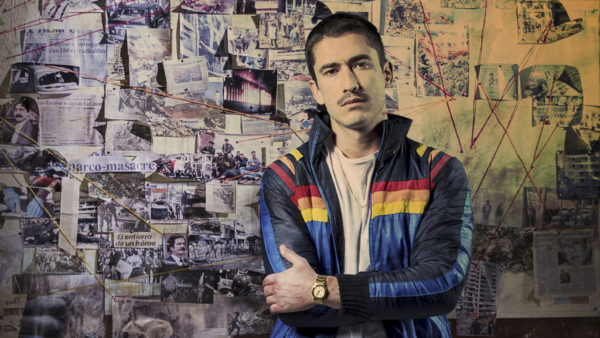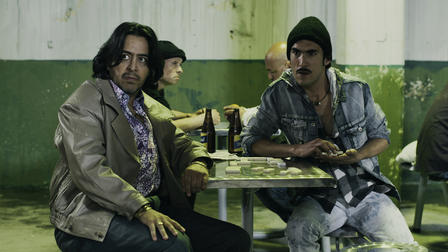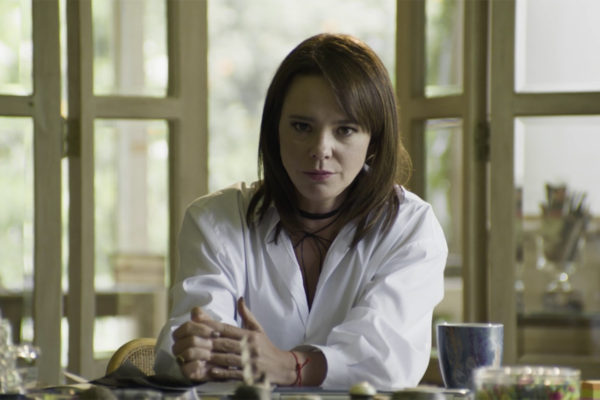Much to my surprise, I’m still watching Surviving Escobar — Alias JJ, the 60-part Netflix series. In the past two weeks, I’ve watched 41 episodes. Yesterday, I binged on two. Tonight, I’ll watch two more.
I never thought I’d make that kind of commitment to a television show, but it’s that addictive.
I tuned in to Surviving Escobar — Alias JJ after watching Narcos, the third season of which begins on Netflix on September 1. Since then, my interest in Colombia’s infamous drug cartels has deepened. The sheer audacity of their cold-blooded leaders and the unbridled comic book violence of their foot soldiers drew me in. But I was also interested in the rampant corruption that enabled them to operate with such relative impunity.
During the 1980s and 1990s, Colombia, mired in a long-running civil war and teetering on degenerating into a dysfunctional state, was awash with bloodshed. Colombia had been defined by its colonial towns and coffee and flower exports. But as it sunk deeper into its self-inflicted agony, Colombia became synonymous with cocaine and rapacious drug lords.
If the first two seasons of Narcos were about Pablo Escobar’s rise to infamy and the Colombian government’s attempts to smash his empire, Surviving Escobar — Alias JJ is about his chief assassin, John Jairo Velasquez, who’s credited with having murdered 250 people. The series is loosely based on Velasquez’s memoirs.
Otherwise known as JJ or Popeye, Velasquez is a killer without scruples. He turned himself into the authorities in 1992 and began serving his time in a Bogota prison shortly before his fearsome boss, the head of the Medellin cartel, was fatally killed in a shootout with Colombian security forces.

With Escobar dead and buried, Valasquez (Juan Pablo Urrego), had to fend for himself in jail — a concrete jungle of hardened and heartless criminals, Marxist guerrillas and members of the right-wing paramilitary. Having learned to protect himself and his associates by means of intimidation and bribes, he established a thriving and extremely profitable drug business by stealth and outside contacts.
The honest warden of the prison, Clemente (Nelson Canayo), has no idea what is going on behind his back. But he tolerates the perks — good food, liquor, conjugal visits and prostitutes — the prisoners enjoy. Life is all the more tolerable behind bars because the corrupt and venal guards are paid off handsomely.
Urrego, a young Colombian actor who portrays Valasquez with aplomb, is alternately chilling and charismatic as a manipulative master criminal. As far as he’s concerned, no problem is too big for him to resolve and no person is too important to be immune to the temptations of bribery. Thanks to his smooth-talking and cynical lawyer, Monica Machado (Amparo Grisales), he avoids extradition to the United States, the worst possible fate that can befall a Colombian drug dealer.

Cunning and ruthless, Valasquez treats the prison as his fiefdom. As the years pass, his austere cell takes on the trappings of a well-appointed bedroom. Although he’s a big shot in prison, he can’t control his feisty wife, Alexandra (Nicole Santamaria), who strays from her marital vows, jeopardizing her lover’s life.
Despite his reputation as a kingpin, Valasquez has to tread carefully. Ivan Urrego (Toto Vega), a rival drug trafficker, detests him, as does his glowering lieutenant, Piojo (Juan Felipe Munoz). When Ivan learns that his wife has taken up with petty criminal Potro (Francisco Javier Rueda), he puts a price on his head.

Abel Mahecha (Elkin Diaz), the bloodthirsty commander of the paramilitary cell block, jostles not only with Valasquez but with Carlos Castaneda (Mario Bolanos), the supreme commander of the paramilitary.
Galeno (Ramses Ramos), the intellectual leader of the guerrillas, loathes them all but is not above making “deals” with them to further the interests of his movement.

The series is narrated by Ana Maria Solozabal (Natasha Klauss), a young crusading broadcast journalist whose beat is the drug trade. She provides context and continuity. After a while, she becomes an integral character, interfacing with government ministers and Valasquez.
Surviving Escobar — Alias JJ, a taut drama, succeeds due to its credible screenplay, fine ensemble of actors, local color and exotic locales.
Which is precisely why I look forward to watching the next episode.